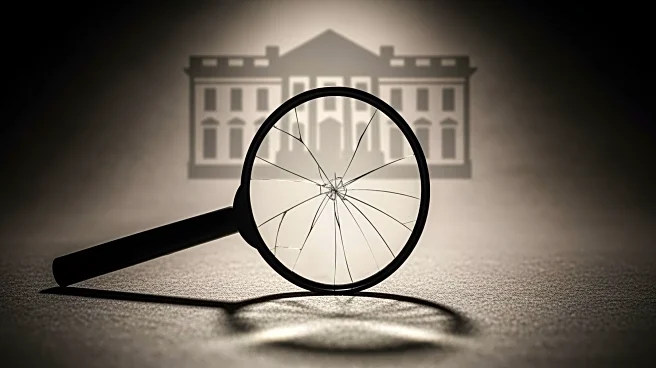What's Happening?
President Trump's initiative to demolish the East Wing of the White House to construct a ballroom has placed several news organizations in a difficult position. Corporate owners of these outlets, such as Comcast and Amazon, are among the donors to the project,
raising concerns about potential conflicts of interest. Comcast, which owns NBC News and MSNBC, has faced criticism from its own commentators for its donation. Similarly, Amazon, owned by Jeff Bezos who also owns the Washington Post, has contributed to the project, leading to editorial support from the newspaper. This situation has sparked debate over the influence of corporate interests on journalistic integrity, with some media personalities expressing concern over the reputational impact on their organizations.
Why It's Important?
The involvement of major corporations in funding a presidential project raises questions about the independence of news outlets owned by these entities. As these companies contribute to President Trump's White House project, there is a risk that their media properties may face scrutiny over potential biases in coverage. This could affect public trust in these news organizations, as viewers and readers may question the objectivity of reporting on issues related to the donors' interests. The situation underscores the broader challenge of maintaining journalistic integrity in an era where media ownership is increasingly concentrated among large corporate entities with diverse business interests.
What's Next?
The ongoing debate over corporate donations to President Trump's White House project may lead to increased scrutiny of media ownership and its impact on editorial decisions. News organizations may need to address public concerns by ensuring transparency in their reporting and clearly delineating editorial independence from corporate interests. Additionally, as the project progresses, there may be further discussions about the role of private funding in government initiatives and the implications for democratic processes. Stakeholders, including media watchdogs and journalism ethics groups, may push for clearer guidelines to safeguard journalistic integrity.
Beyond the Headlines
The ethical implications of corporate donations to government projects extend beyond immediate concerns about media credibility. This situation highlights the potential for corporate influence in political decision-making, raising questions about the balance between private interests and public good. As media companies navigate these challenges, there may be broader discussions about the role of journalism in holding power accountable and the importance of maintaining a free and independent press in a democratic society.















